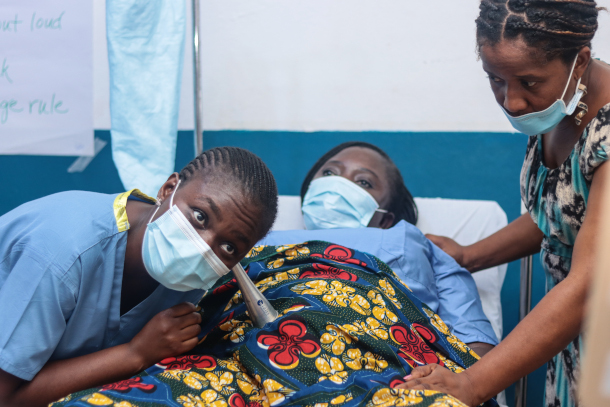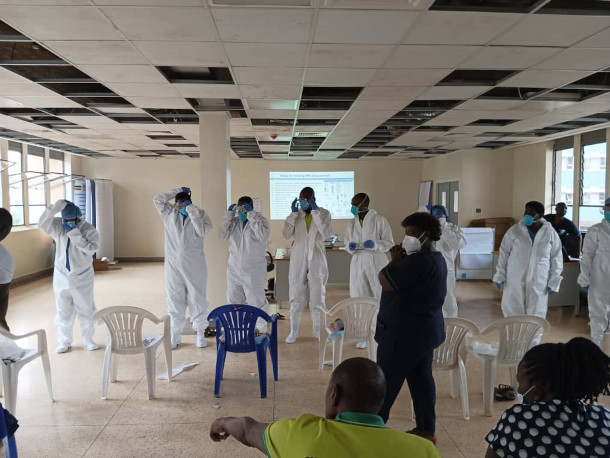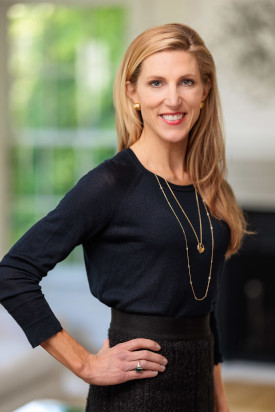|
O NEILL: From PRX and the Jennifer and Ted Stanley Studios at the University of Massachusetts, Boston this is Living on Earth. I m Steve Curwood
O NEILL: And I m Aynsley O Neill.
Just last month COP28 in Dubai became the first climate summit to observe Health Day. 124 countries endorsed the Declaration on Climate and Health, sounding the alarm on the severe public health and wellness implications of the climate crisis. The World Health Organization or WHO estimates that by the end of this decade the cost of the climate impact on health will be between 2 and 4 billion dollars per year. But that figure is surely an underestimate because it doesn t include massive climate burdens on agriculture, water, and sanitation, which all shape public health. And WHO says the health sector receives just one half of one percent of global climate financing. In light of that shortfall, COP28 included an announcement of 1 billion dollars towards climate and health, though some of that funding was already committed before the talks began. Dr. Vanessa Kerry is the WHO Special Envoy for Climate Change and Health and helped organize Health Day. She also leads the non-profit Seed Global Health, which works primarily to strengthen medical systems in Sub-Saharan Africa. Dr. Kerry joins us now. Welcome to Living on Earth!
KERRY: Thank you very much. It's really a pleasure to join you.
O'NEILL: Now, a statistic I've seen is that according to the World Health Organization, between 2030 and 2050, climate change is expected to cause approximately 250,000 additional deaths per year from things such as undernutrition, malaria, cholera, diarrhea and heat stress alone. Can you walk us through the connection between the climate crisis and these particular diseases?
KERRY: Absolutely. The climate crisis is a health crisis. It is the 250,000 deaths a year is probably an underestimate. The data has been changing rapidly. We're learning every day, we're playing catch up on exactly how we're being impacted from climate change in terms of our survival, our human health and our well being. There are very direct impacts of climate change on human health in terms of extreme weather events, whether it is deaths from drowning, wildfires, air pollution, if it is changes and increases in infectious diseases, non communicable diseases that are being driven. Just to give a very concrete example, the floods in Pakistan and 2022 led to four times the rates of malaria, after the floods, including in provinces where malaria had been almost completely knocked out. We're seeing this in non communicable diseases, data just came out just before COP that told us that over 5 million deaths a year are directly attributable to fossil fuel use and the air pollution from fossil fuels. We're seeing this in pregnancy. But we're also seeing indirect impacts that are happening on human health from climate change, which is, for example, that we're seeing changes in dry seasons in drought, like we're seeing in the Horn of Africa, food insecurity, we're seeing changes in access to water. We're seeing this in terms of people's livelihoods and their abilities to go to work because of extreme heat. We're also seeing it in terms of gender based violence. We've heard reports of young girls who have to walk farther and farther now for water in Kenya, who then are at increased risk of gender based violence and sexual assault because of the distance or traveling. So what we're dealing with is quite literally in every possible way, climate change is impacting our daily experience today, here and now. And our ability to live healthy lives, and to have the opportunities that we want for ourselves and our family.

Seed Global Health midwife educator assessing a pregnant woman at Makeni Hospital in Sierra Leone. (Photo: Courtesy of Seed Global Health)
O'NEILL: Now, there are all these overarching issues that tie together climate and health. But I want to think about some of the immediate impacts that we might be seeing. If we reduce fossil fuels, if we cut fossil fuel emissions, how immediately can we start to see health benefits from that?
KERRY: It is urgent that we absolutely commit to a phase out of fossil fuels. And it is urgent if we're going to keep to the Paris 1.5. And certainly, we're going to protect human health. So we did talk about the study that talked about the fact that there's over 5 million deaths a year that are directly related to fossil fuel use. But what we know is there are scientific studies, for example, in the inner cities and in communities and other places that show that when you actually get rid of gas or fuel burning buses and pollutants, you can actually reduce asthma attacks hospital and emergency room visits. And you can start to see direct benefits and health just in the immediate moment of reducing fossil fuels. But fossil fuel use is actually driving our extreme weather. So as long as we are burning fossil fuels, and we are continuing to see an increase in greenhouse gas emissions, we are going to continue to drive the extreme weather that is leading all the health bad outcomes that we're seeing. So some of it is absolutely immediate, but some of it will drive a change that might take a little bit longer to see. But the important thing to remember is there is an urgency to reducing fossil fuel use today, we may not see all the direct outcomes for a year or two years until we start to really see the crest in terms of the greenhouse gases that we're doing. But we will be in completely the wrong direction and we will be accelerating the number of deaths and we will be accelerating the harm if we do not commit to a phase out of fossil fuels today.
O'NEILL: Now Dr. Kerry, your organization Seed Global Health works with nurses, midwives and physicians in Malawi, Sierra Leone, Uganda, Zambia, how have you seen the fallout from the climate crisis and the work that you do in that field?

Health workers at Mulago National Referral Hospital participating in an Ebola infection prevention and control training in Uganda in 2022 following the Ebola outbreak there. (Photo: Courtesy of Seed Global Health)
KERRY: See Global Health got involved in the climate change discussions because we have felt very directly the impacts of climate change in the communities where we work and it's made our job harder. As we have trained over 34,000 healthcare workers over the last decade that are in service to catchment areas of about 73 million people. What we have found is that extreme storms in Malawi that are more severe happening more frequently lasting longer, are making it harder for the healthcare workers be trained to do their job. There's more malaria at the height of the malaria season. There's more malaria when it's not Malaria season. We're seeing bridges washed out. I mean, a colleague of ours, Chauncey Banda, who's a midwife in the Sonjay district in Malawi, ended up having to help the government, you know, advocate for the government to have to set up new birthing centers, that Seed ended up supporting to help stand up because the bridges washed out to the existing birthing centers. And it turns out that when you're in a climate crisis, or when you have storms, women go into preterm birth more frequently. So this has a very real impact if you can't have continuity of services. Together, we ended up working to open these facilities such that C sections could be provided, and that women could have that continuity of care. And not a woman or child died in the wake of some of these storms after they lost their original facility. But that makes our job harder, that's more work, when we could be delivering primary care services or ensuring services, you know, elsewhere. And so we're finding that we're seeing more and worse health outcomes because of climate change. It's the same in Uganda, it is the same in Sierra Leone, it is the same in Zambia, it's across the continent, and it's across the world. It's here in the United States. So we know we're going to need more workforce to meet the challenges from climate change, we're going to need health systems that can be resilient to the climate changes that are happening to keep delivering services. And we need to adapt to these changes here and now or we're going to lose more lives.

Vanessa Kerry is the director of the Program in Global Public Policy and Social Change in the Department of Global Health and Social Medicine at Harvard Medical School. She is also the founder and CEO of Seed Global Health as well as a physician at Massachusetts General Hospital and serves as the associate director of Partnerships and Global Initiatives at the hospital s Center for Global Health. (Photo: Courtesy of Seed Global Health)
O'NEILL: Dr. Kerry, what inspired you to get into this world of strengthening global health care?
KERRY: I grew up in a house a public service with both my parents very, very committed to being global citizens, and to being advocates for those that maybe couldn't advocate for themselves. And so as I was always interested in going into medicine, I very much brought some of those experiences forward with me into my medical career. When I was 14, I had the opportunity to travel to Vietnam back before sort of we normalize relations for the country and saw a level of poverty that was just shocking at the scope, the scale and the degree of the poverty that I saw. And I didn't know what to do with it at age 14. But I held on to it so that when I went to medical school became very clear to me that my medical career needed to integrate some of that experience that I had had in Vietnam and actually, it had the opportunity to see in other countries as I had lived and worked in other places. And it put me very much on a path to realize that, you know, at that time, it was 2,000 but I've been saying the same thing now for 20 years, so that I can still say unfortunately, in 2023, it is unacceptable, that there are two such different standards of medical care in the world. And we have the technology, we have the wherewithal we have the resources were just not making the choice to provide the services to people. And that is just fundamentally unacceptable. So my career and my colleagues that I have the privilege of working with whether it's in any of our African countries or globally or with the team at Seed, we are all committed to that same mission, to really close that gap with every capability that we can to make sure that there's a strong and robust healthcare workforce to deliver services to hold someone's hand when they die. So they don't die alone. And they die with dignity to ensure that a woman when she's hemorrhaging, childbirth, has that bag of blood hung for her son, you can save her life. To make sure that we're diagnosing patients appropriately, managing them appropriately and that the medicines are available to be able to treat them. So for us climate change is just exacerbating that gap even more and driving it even further, which is what has brought me to this place of now getting engaged in the climate health Nexus because the work that we spent a decade doing is all at risk if we don't step up to this moment with a new and accelerated commitment and to bring others on board to meet this moment.
O'NEILL: Dr. Vanessa Kerry is the CEO of Seed Global Health and the WHO Special Envoy for Climate Change and health. Vanessa, thank you so much for taking the time with us today.
KERRY: Thank you very much for having me. It's a pleasure to be able to connect.
Links
Learn more about Dr Vanessa Kerry’s appointment as WHO Director-General Special Envoy for Climate Change and Health Learn more about Seed Global Health
|